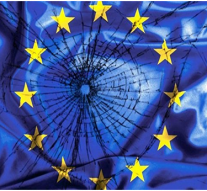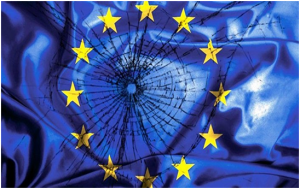
The EU at a crossroad in 2017
Employment and Social Affairs 29 January 2017
Sputnik/ Collage
European Union is facing growing concern for security reasons: people’s fear and authority’s attention is high on this, calling once more for tightened controls in the aftermath of the latest terrorist attacks in Germany and France and at the EU eastern border in Istanbul. Security issues will be a dominant political theme in EU political debate in 2017, especially as regards elections in key countries: France, Germany, Netherland and Czech Republic. But of course the need for security is a priority for the entire EU and highlight once more the need to search for an higher level of coordination in many sectors among member states. European Council president Donald Tusk has recently said that “people expect that the EU will again be a guarantor of stability, security and protection”. Indeed EU security policy has come under attention not just with recent terrorist attacks in France and Germany but also with the ongoing migration crisis. It is not about linking two different problems as terrorism and migration but about how the EU could be useful in providing security and concrete response to its citizens. Migration is the first priority for Maltese presidency of the EU Council, started in January 2017, which aims to address the issue through an “holistic approach” completing the work in relation to the European External Investment Plan “to promote sustainable investment in Africa and the neighborhood and to tackle the root causes of migration”. Enhancing investment plan in the countries of origin of the massive flow of migrants is the last point of the “concrete objectives” envisaged by the Maltese presidency priority‘s plan, but together with streamlining the cooperation with countries at the borders of the EU is a key action to address this epochal challenge. As regards security, Maltese presidency aims at achieving significant progress on current initiatives aimed at better managing the Union’s external border, also through “the establishment of an EU system to register entry and exit of third country nationals” and “improving the governance of Eurojust in order to ensure more coordinated criminal justice cooperation across borders”. Furthermore another priority specifically listed in Maltese presidency plan is “Europe’s neighborhood” and considers that “Europe’s security and prosperity are interlinked with those of our neighborhood”. One of the sources of migration and even terrorism is to be found here: the countries bordering the Southern Mediterranean are facing serious challenges, such as armed conflict, terrorism, political instability and radicalization; and all this has a direct repercussion on the EU. The “holistic approach”, envisaged by this little country at the southern borders of the EU, seems like the opposite one of the “populistic” response of many nationalist movement in Europe. Off course it need to be implemented concurrently with national states response but to make this ambitious plan effectively work it is important that the EU is not divided, with conflicting interest among its members states. In this sense even Germany’s insistence on austerity in the euro zone has left Europe divided and a break-up of the EU can no longer be ruled out, as Brexit referendum has proved. Thus it seems that the EU is at a crossroad: in the six months that lie ahead, Brussels should provide effective answers also on economic and employment sectors, where it has to be closer to the need of its citizens if it doesn’t want a wider spread of populism.


